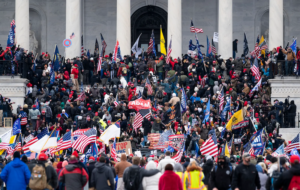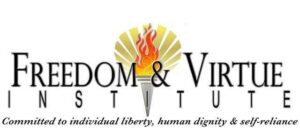The grand experiment of the American republic was based, James Madison said, on “the capacity of mankind for self-government.” Adams and the other founders believed that the era of political absolutism—of lodging complete power in a ruler or group of rulers without regard for the self-determination of the people—could be relegated to the past. But this experiment depended on one, indispensable condition: that the people be willing to shoulder the responsibility given them. Self-government did not simply the right to vote; it meant that the voters must take up the burdens of governance throughout their lives. Thus the durability of the American experiment depended on the persistence of a certain kind of people: a “moral and religious people.”
That formulation comes from John Adams’ well-known claim: “Our Constitution was made only for a moral and religious people. It is wholly inadequate to the government of any other.” George Washington said similarly, “Of all the dispositions and habits which lead to political prosperity, religion and morality are indispensable supports.” Adams and Washington were not mouthing rhetorical platitudes; they were voicing a conclusion based on robust historical and philosophical premises, a tenet held almost universally by the founders: that only a virtuous people could sustain the republic they had designed.
Why was this so? Because people ceded power to government for the purpose of maintaining order. The more that order needed to be imposed from above, the more power government would need. Conversely, the more that order was self-imposed, the less demand there would be for vigorous government intervention. (Recent images of a military-occupied Capitol are a graphic reminder of the authoritarian crackdown that disorder invites.) The self-imposition of order, the founders understood, was achieved by the exercise of self-control, which was the bridling of passion by reason. Self-control was a virtue that required effort and cultivation. And virtue, they further understood, was most commonly imbued and achieved by the practice of religion. Therefore, the Constitution—which stipulated a government whose powers were strictly limited—depended on a “moral and religious people.”

Bill Clark:CQ-Roll, Inc via Getty Images
This is one of the reasons the founders were so concerned with the often-misunderstood and later-corrupted principle of the separation of church and state. They insisted that there be no state-sponsored (“establishment”) church not because they thought that religion was unimportant or should be relegated to the private sphere, but because they were convinced that religion was essential for societal wellbeing and was a vital support for government. It was imperative that the American citizenry maintain a vibrant and meaningful religious sensibility, which would in turn serve to sustain virtue. Government control of religion weakened this role by, at best, corrupting religion, and at worst, suppressing genuine religious practice when it did not conform to authorized expressions.
It is true that some of the founders had an overly utilitarian view of religion, which explains why they were not devout and orthodox believers themselves. But their utilitarian calculation was nonetheless correct. The self-control necessary to support self-government is a virtue that is difficult to sustain in the absence of widespread religious belief. Religion provides both the worldview and the communal environment within which sacrifice makes sense. Without it, self-aggrandizement easily vanquishes self-control, and the passions easily run rampant over reason. As concupiscence—the sinful weakness of human nature—takes over, anarchy spreads: in the family, in the workplace, in the school, and in politics.
In the early decades of the American experiment, the French visitor Alexis de Tocqueville could still perceive these connections. “In America, religion leads to wisdom,” he wrote, and “the observance of divine law guides men to freedom.” Would he be able to make the same observation about today’s America?


